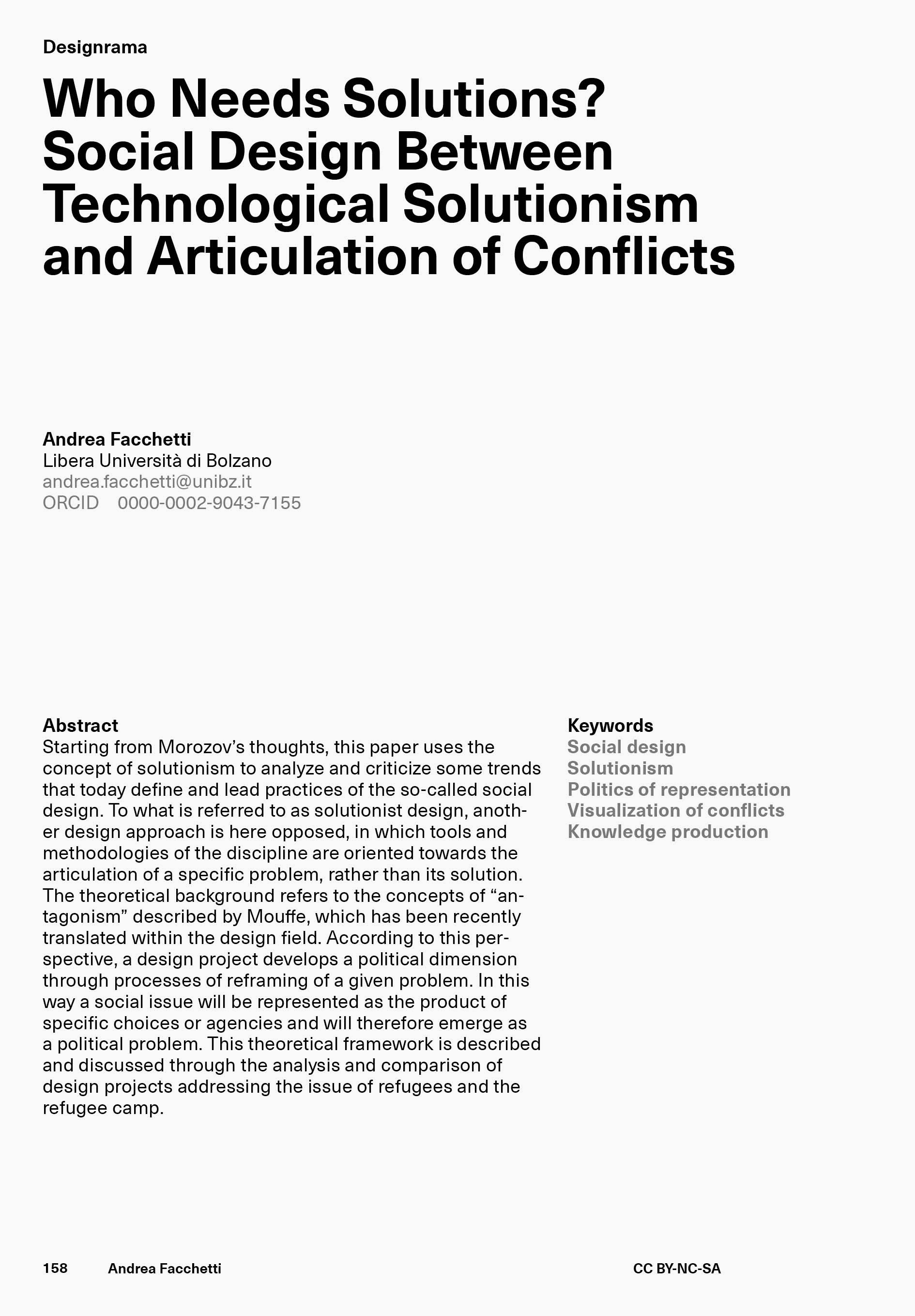Who Needs Solutions?
Social Design Between Technological Solutionism and Articulation of Conflicts
DOI:
https://doi.org/10.30682/diid7421oKeywords:
Social design, Solutionism, Politics of representation, Visualization of conflicts, Knowledge productionAbstract
Starting from Morozov’s thoughts, this paper uses the concept of solutionism to analyze and criticize some trends that today define and lead practices of the so-called social design. To what is referred to as solutionist design, another design approach is here opposed, in which tools and methodologies of the discipline are oriented towards the articulation of a specific problem, rather than its solution. The theoretical background refers to the concepts of “antagonism” described by Mouffe, which has been recently translated within the design field. According to this perspective, a design project develops a political dimension through processes of reframing of a given problem. In this way a social issue will be represented as the product of specific choices or agencies and will therefore emerge as a political problem. This theoretical framework is described and discussed through the analysis and comparison of design projects addressing the issue of refugees and the refugee camp.

Additional Files
Published
How to Cite
Issue
Section
License
Copyright (c) 2021 diid — disegno industriale industrial design

This work is licensed under a Creative Commons Attribution-NonCommercial-ShareAlike 4.0 International License.



